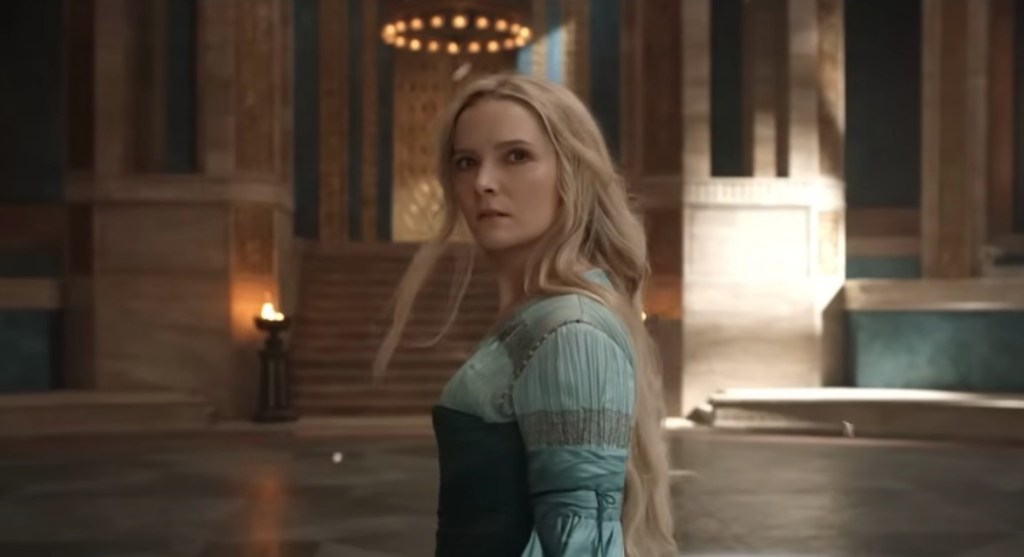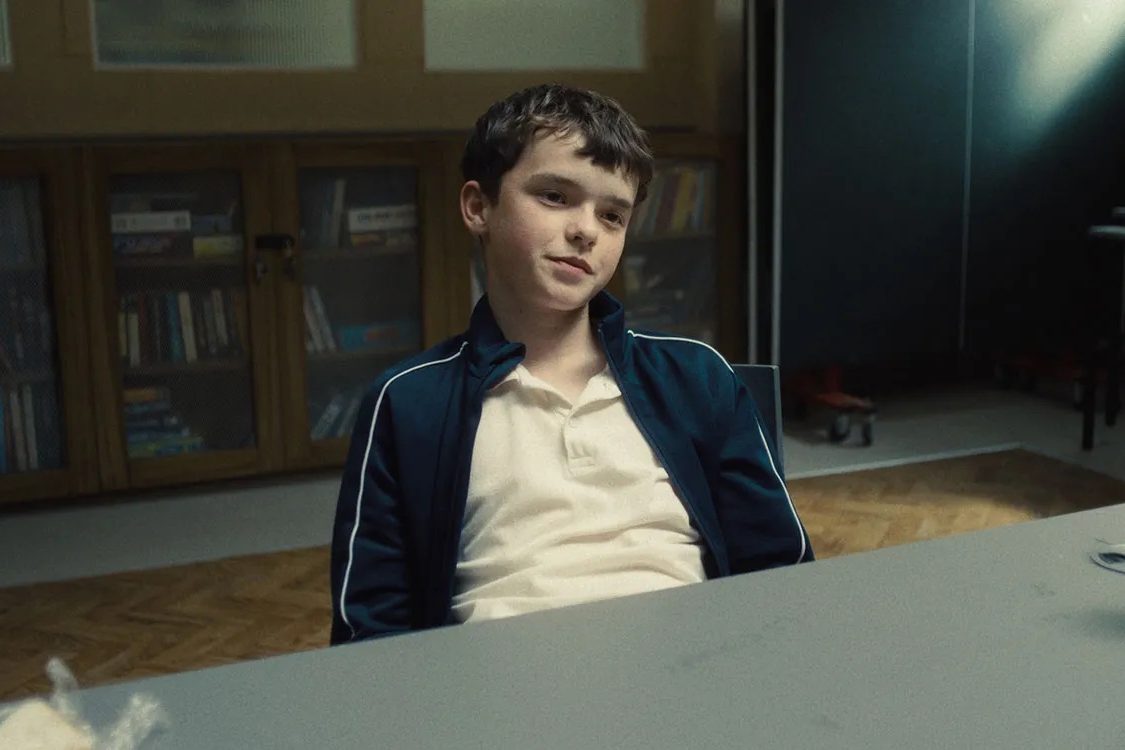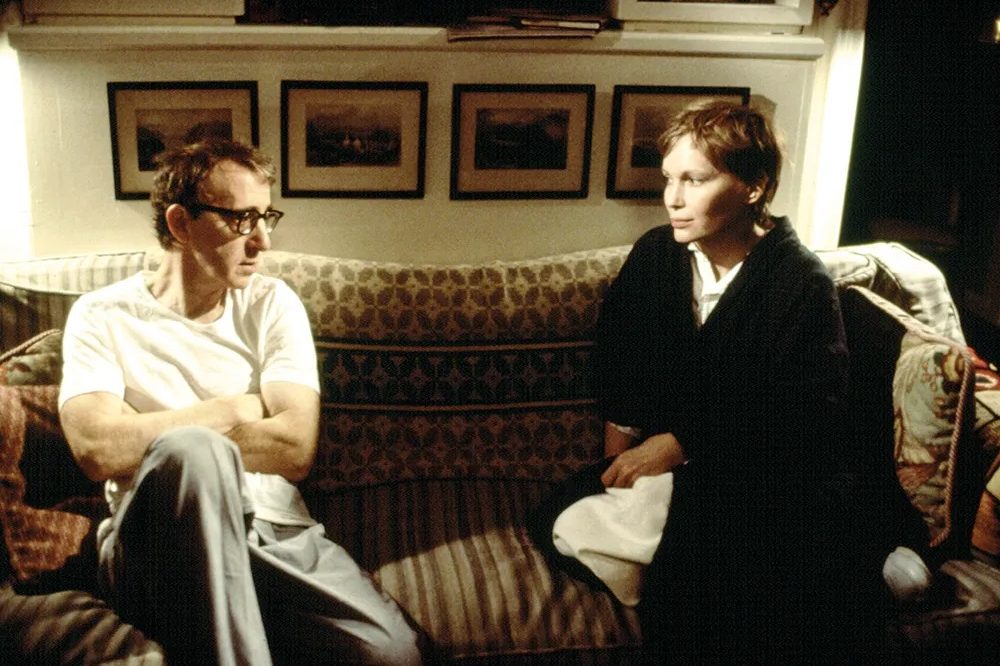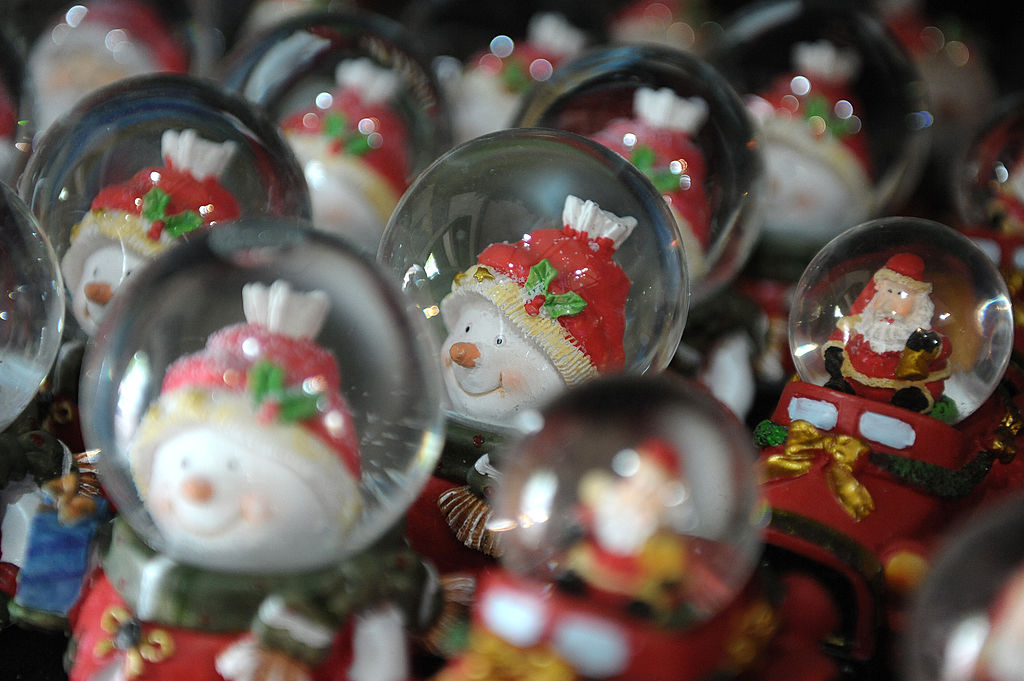I didn’t set out to become The Spectator World’s designated defender of unpopular entertainment properties, but here we are.
Why is Amazon’s new Lord of the Rings show taking so much flak? The way I see it, there are two (mostly separate) factors at play: Tolkien fandom and race.
First, Tolkien fandom. Despite the best efforts of the Tolkien Society to “queer” Tolkien studies, the Inkling’s biggest admirers tend to be Christians on the cultural and political right. Most of this crowd (aside from those who think hating universally beloved things is a good substitute for a personality) loved Peter Jackson’s Lord of the Rings trilogy. His adaptation of The Hobbit, which took plenty of liberties in order to stretch about 300 pages into three feature films, was less well received. So when Amazon announced that it would be stretching even less material over even more screen time, fans were understandably concerned.
Add to that some early (though thankfully debunked) rumors about R-rated sexual content and a few virtue-signaling press releases about racially diverse casting, and soon jokes about disabled transgender elves were ubiquitous on conservative Christian Twitter. The official trailer was ratio’d 10:1 on YouTube, and a Babylon Bee parody trailer managed to rack up more likes than the real one.
This, in my mind, is a travesty, because it’s causing people to miss out on what’s actually a pretty good show so far. Plenty of Tolkien fans have avoided the series altogether, while others have chosen to hatewatch it. And when you watch something with the sole intention of finding things to hate, you’re usually successful.
Take, for example, this piece in Crisis by Ben Reinhard.
He tells us that the show’s portrayal of Galadriel falls sort of Tolkien’s “idealized vision of feminine beauty and grace.” Really? Because she seems pretty tempestuous in The Fellowship of the Ring, and anyway I doubt watching her glide ethereally through wheat fields in a tradwife dress for eight seasons would be particularly engrossing.
Reinhard also calls Galadriel “one of the least likable protagonists ever committed to screen” because of her “smothering self-righteousness.” As an English professor, I’m sure Reinhard knows what a dynamic character is. Even just four episodes in, it’s fairly obvious that Galadriel’s arc will involve renouncing her obsession with vengeance. But as I said, when you look for problems, you find them.
One more: Reinhard doesn’t like that the Harfoot (read: hobbit) maid character “repeatedly transgresses the bounds set by her cautious, traditional elders,” which violates Tolkien’s emphasis on “piety, gratitude, and humility.” Surely no one has told Reinhard about a hobbit named Bilbo Baggins who did a very unrespectable and untraditional thing by setting off on an adventure with a bunch of ragamuffin dwarves.
A much better critique from a different source focused on the show’s opening scene, in which Galadriel’s brother, Finrod, tells her that sometimes the only way to tell good from evil is to “touch the darkness.” This runs directly contrary to Tolkien’s thinking, as seen most clearly in his portrayal of Saruman. Of course, Finrod later joined the armada that sailed to Middle Earth to reclaim the silmarils, an event Tolkien likened to Adam and Eve’s fall from paradise. So maybe Galadriel will come to learn that his advice wasn’t so good.
Perhaps the shallowest criticism I’ve seen was a viral tweet that used altered and deceptively arranged screenshots to make it seem as though the men of Númenor were holding a xenophobic “Trump rally.” Sure, there were a few cringey lines about elves stealing human jobs, but for the traditional Tolkien fan willing to look past that, there was much to enjoy in the latest episode.
Toward the end of the episode, for instance, we learn that Tar-Palantir, the deposed king of Númenor, was a religious reactionary. His campaign to restore the true faith came to an end when riots backed by entrenched interests forced him from his throne. His daughter, Tar-Miríel, who took over as regent, treasured her father’s beliefs in her heart but refused to impose them politically. In our world, she’d keep a rosary in her pocket while issuing executive orders to expand abortion access. “Faith may bind one heart, Galadriel, but it is too fine a thread by which to hang a kingdom,” she says. I can’t think of a better, more succinct critique of secular liberalism and the privatization of religion it demands.
The show is also just nice to watch. There’s beauty and joy to it. After so many years immersed in Game of Thrones (and now House of the Dragon), it’s nice to be reminded that there’s more to life than killing, screwing, and scheming. In one Rings of Power episode, the Harfoot maid leads some younguns out to a clearing full of berry bushes, and they all have a good frolic. I’d forgotten how much I love watching a good frolic. The closest Game of Thrones can get to a frolic is an orgy.
Now, onto race. I’m sure there’s a small subset of people for whom the mere sight of melanated skin on a screen is enough to trigger a paroxysm of rage. These are the people who were responsible for the whole dustup surrounding the Disney+ miniseries Obi-Wan Kenobi, which cast a black woman as its principal antagonist. Ignoring the minuscule number of racist Twitter trolls who objected should have been easy. Unfortunately, we live in 2022. The entire Disney PR machine lurched into action, cracking out a slew of anti-racist messaging to assure viewers that hate has no home in the galaxy far, far away.
This no doubt played well with blue-haired faux-leftists who like to be pandered to by multinational corporations that profit off of genocide. For everyone else, it was just one more sign that Disney had gone woke.
We’ve seen similar cycles of discourse with House of the Dragon, the remake of The Little Mermaid, and (of course) Rings of Power itself, in which elvish, dwarvish, human, and hobbit characters, in all their varying tribes and nations, were cast on a largely race-blind basis. One Twitter personality even quipped that Amazon had created the entire billion-dollar series just so they could post that “BIPOC belong in Middle-earth.”
It’s all so tiresome. On one hand, I understand conservatives’ frustration. Progressive rhetoric on this issue is blatantly dishonest. Each time a beloved franchise gets a little less white, they celebrate a great victory for “representation.” If anyone on the right objects, they switch tactics: “It’s not a big deal,” they say. “Why do you care so much?” Gaslighting 101.
But the question remains: Do we care that the mermaid/hobbit/inquisitor is black? Or do we just care that they care?
It’s easy to fall into absurdities when debating this topic. I’ve seen plenty of conservatives claim that because Hans Christian Andersen was Danish, Ariel in The Little Mermaid must be white. By that logic, why stop at “white” (which is itself an imprecise category)? Why not insist that she be Scandinavian? Or even Danish? Do we need to start requiring actors to submit a full genetic sequence along with headshots? Some progressives came pretty close to demanding exactly that when Gal Godot was cast as Cleopatra.
Joel Berry of the Babylon Bee had an insight that I found particularly helpful: “’Blackness’ isn’t just a skin color to the left. To them, it’s also a collectivist, anti-West ideology,” he wrote. “That’s why…when Leftists race-swap a character, it looks like they’re making an ideological statement.”
This pairs nicely with a post from black conservative Leonydus Johnson, who responded to the mermaid fracas by advocating for a “colorblind, post-racial society [in which] skin color matters about as much as hair color.” Bingo. The melanin content of someone’s skin is not a political statement, and shame on anyone — right or left — who treats it as such.
Taken together, those two statements do a good job of articulating where I (and probably most other conservatives) stand: casting can be limited by race for purposes of historical fidelity or to make specific statements about race. Otherwise, cast whoever you want. Just don’t shove all that woke stuff down our throats while you do it.
The country is pretty thoroughly bifurcated already, but let’s not make it worse unnecessarily. As long as we have some stories in common, we might just make it through.

























